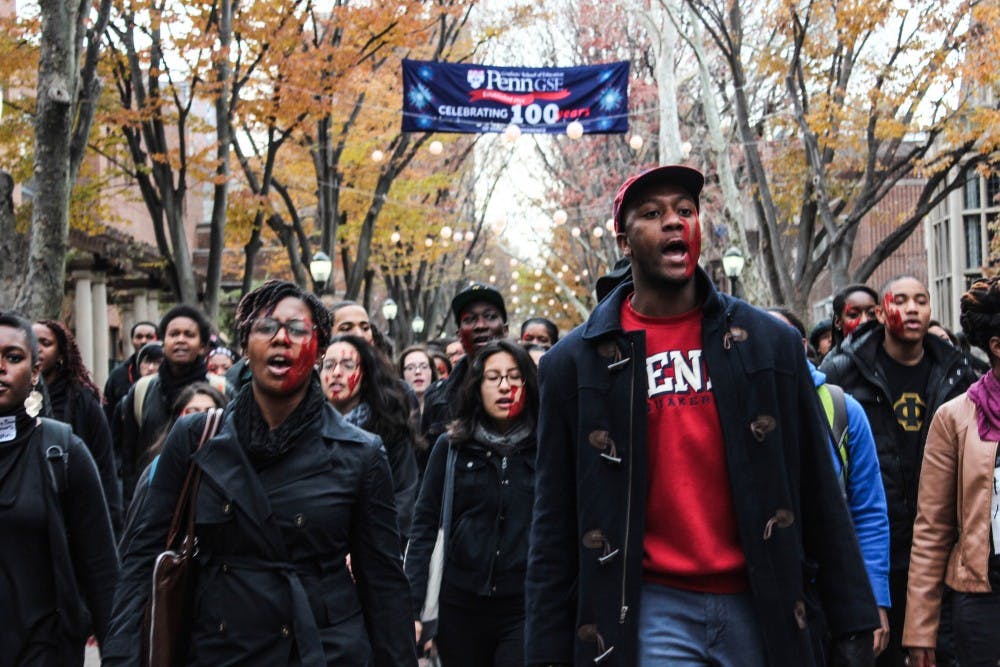It has been a year since Michael Brown, an unarmed black teenager was shot and killed by Darren Wilson, a white police officer in a suburb of St. Louis. However, the effects are still tangible.
A panel discussion at Penn Law School on Wednesday entitled, "Ferguson: One Year Later" examined the after effects of the shooting and its meaning on Wednesday. The panel, facilitated by Penn Law’s Quattrone Center for the Fair Administration of Justice and Toll Public Interest Center, shined a spotlight on the United States’ criminal justice system and looked at it from multiple perspectives.
The shooting — and the grand jury’s eventual decision not to indict Wilson — prompted protests that brought the area into a state of turbulence for weeks, which then spread and ignited mass protests across the country. The shooting of Brown, one among countless other unarmed black individuals, has brought forth a spotlight on the holes in the United States’ criminal justice system.
“It’s a tragedy of 360 degree proportions. It’s still a tragedy and the question is: what are we going to do about it as individuals to prevent the tragedy from happening again?” said 1992 College graduate John Holloway, executive director of the Quattrone Center for the Fair Administration of Justice at Penn Law, as he addressed the audience.
Executive Director of the Toll Public Interest Center Arlene Finkelstein facilitated a discussion between the panelists, which included a wide range of participants. Executive Director of Philadelphia’s Police Advisory Commission Kelvyn Anderson and Clemmie Harris, visiting assistant professor of African American Studies at Wesleyan University, both shed insight into the situation. Holloway and Penn Law Senior Fellow David Rudovsky also took part in the panel.
“When tragedies happen, attention spans can be pretty short and it's incumbent on academic institutions to do what they can to facilitate what they can in conversations," Finkelstein said. "The hope is that we can maintain attention on these critical issues of our time and inspire action."
The conversation attempted to link community and race, putting forth possible solutions.
“We need to talk about rules of engagement between police and communities," Holloway said. "Implementing a best practice on a written policy is the easy part. The question is how do we change those documents in a way that changes the next interaction between a frightened white police officer and a scared black teenager? How do we change the rules of that engagement? It means police changing from a warrior mentality to a guardian mentality.”
Anderson talked about the plan’s goals to broaden the scope of how to improve the process.
“Police oversight agencies like the commission have increasingly turned attention from individual incidents to try to take into consideration systemic issues,” he said.
Philadelphia’s Police Advisory Commission looks at underserved and over-impacted communities and how these communities interact with the police department.
“You’ll never get anywhere unless the police department holds their people accountable for the lack of compliance we see,” Rudovsky said.
The panel members admitted that there is still a long way to go in terms of addressing the shortcomings of the criminal justice system. However, they also stressed the need for academic institutions to facilitate and participate in cultural change by keeping the dialogue going.
“I think academic institutions are doing the right thing in having these discussions because of this one particular point: nature of national dialogue is always in a reaction to an event. Significance of this conversation is in reference to a sustained dialogue. You have to keep the conversation going,” Harris said.









